-
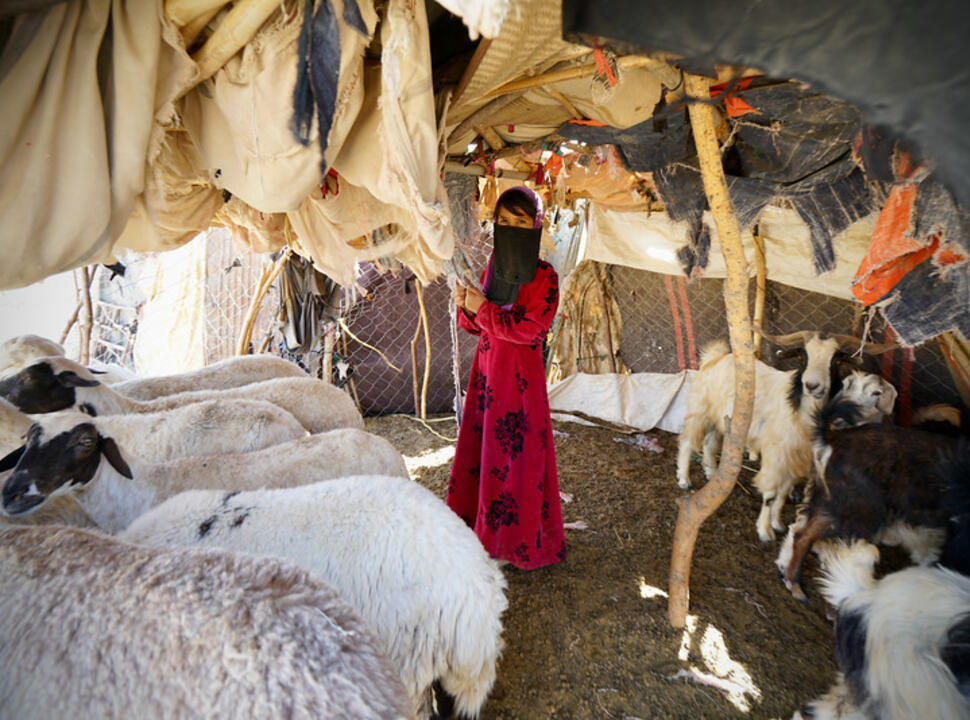
In December 2021, Yemen took on a grim distinction: For the third year in a row, it was the country that needed the most humanitarian funding support in the world. Of the 20.7 million people needing assistance or protection, 12 million are in acute need. Though last year’s $100 million humanitarian appeal was only half funded, UNFPA reached nearly 2.8 million people with reproductive health services, protection information and services and emergency relief, supporting 127 health care facilities, 1,500 reproductive health workers, 51 safe spaces, nine shelters and eight mental health centres. This month, without additional funding, 63 of those health facilities and a third of the safe spaces, shelters and specialized facilities for gender-based survivors will be forced to shut, leaving nearly 1.3 million women without access to reproductive health care and protection and psychosocial support.
Top: A displaced girl inside her temporary shelter at an internally displaced persons camp in Marib, Yemen. © UN/Giles Clarke
-
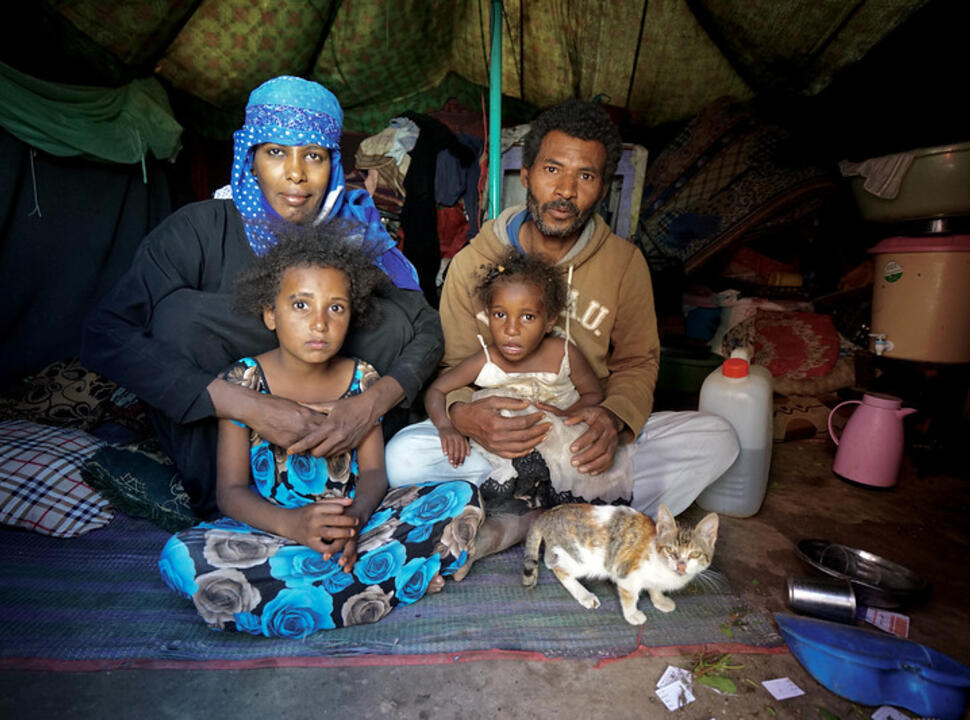
Faisal and Fatima Saad and their children have lived in their tent in Al Turbah since fleeing Taiz City in 2015. “We left because of the bombings, missiles, tanks, mines,” said Faisal. “Sometimes I washed cars. We were basically scavengers in Taiz, but it worked.”
They are among some 1,000 families, or about 6,000 people, at this internally displaced persons camp. “The cold is the biggest problem here, and we don't have clean water,” Fatima said. “There's no medicine, no cash. Some days we have food and sometimes we don't.” © UN/Giles Clarke
-
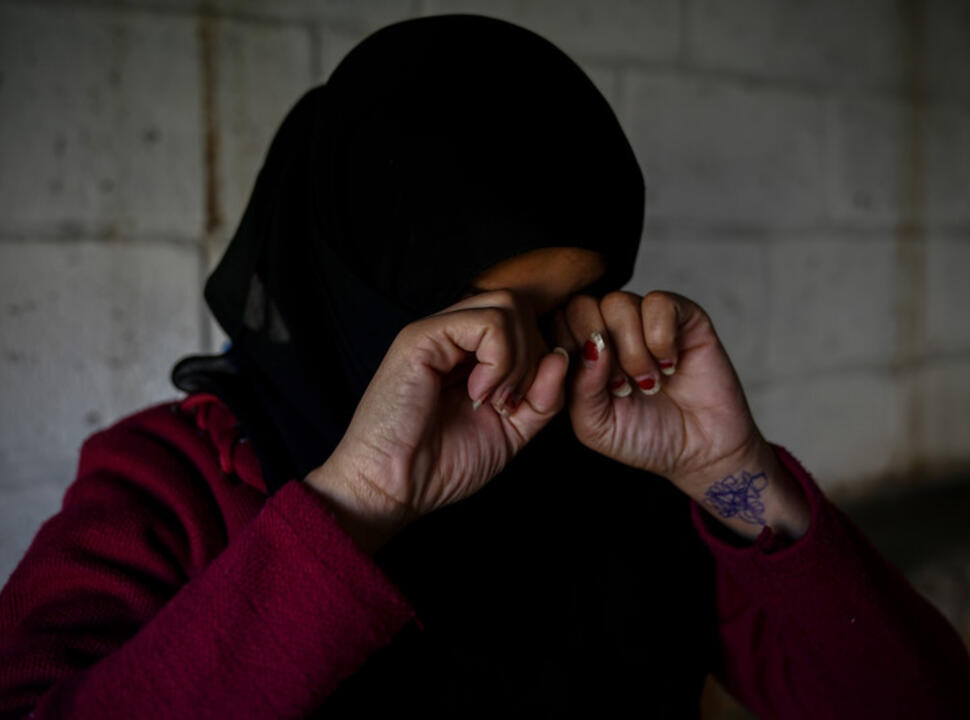
Married at 15, Rima* suffered abuse at the hands of her husband, who beat and kept her chained to a wall in their home. Now 17, she is getting help at a UNFPA-supported mental health centre. “I want to go back to studying. I want to have a future,” she said. “I want to be a doctor. And I want to be a cop so I can take my husband to court.” Of Yemen’s 4 million child brides, 1.4 million were married before age 15. © UN/Giles Clarke
*Name changed for privacy and protection.
-
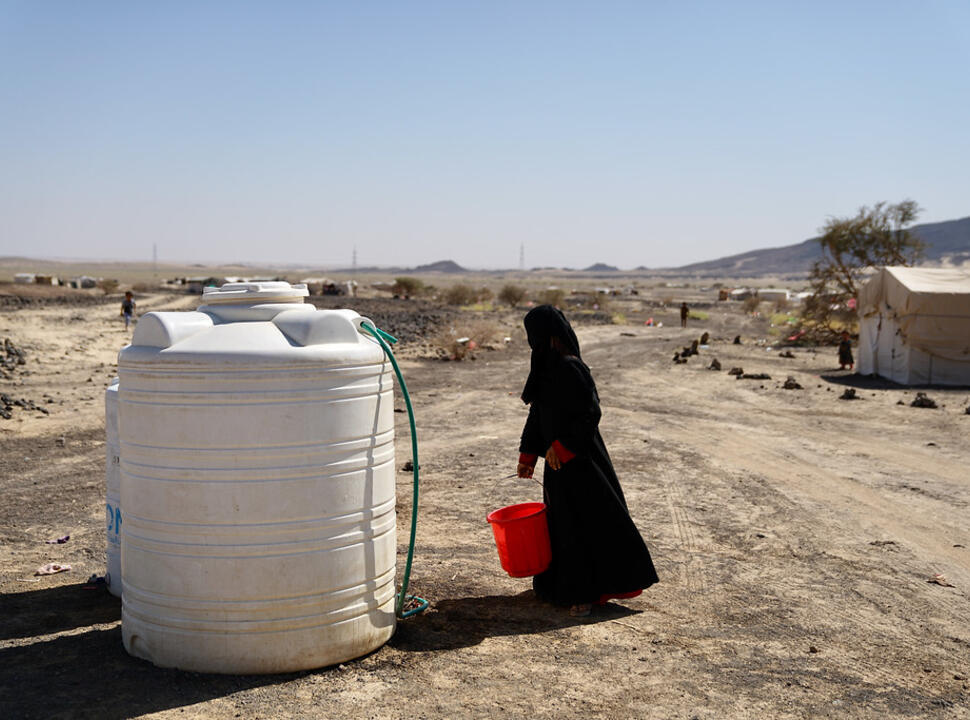
A young girl fetches water at an internally displaced persons settlement in Marib, Yemen. Of the 48 active front lines in the country, the Marib front lines are most concerning. Since the start of 2022, more than 50,000 people have been displaced from Marib. With an estimated 4 million internally displaced people – 73 per cent of whom are women and children – Yemen is the fourth largest displacement crisis in the world. © UN/Giles Clarke
-
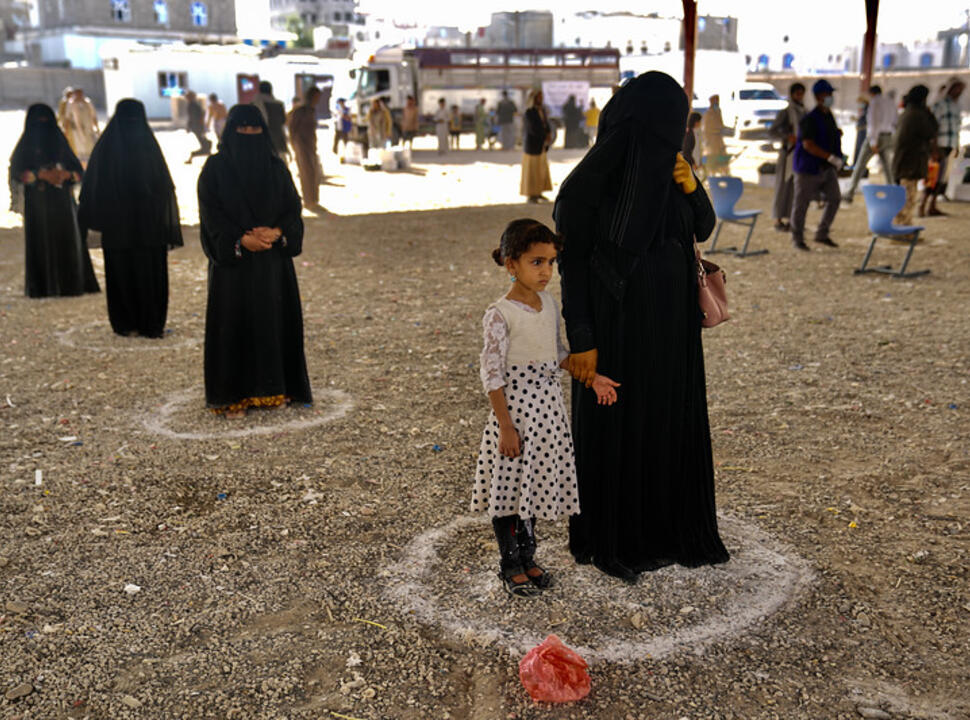
Painted circles keep displaced Yemeni women socially distanced as they collect emergency relief items including food, family hygiene supplies and female dignity kits distributed as part of the UN Rapid Response Mechanism (RRM). UNFPA, which leads such rapid response efforts including those of UNICEF and the World Food Programme, distributed 62,701 kits last year, reaching 434,497 people. © UN/Giles Clarke
-
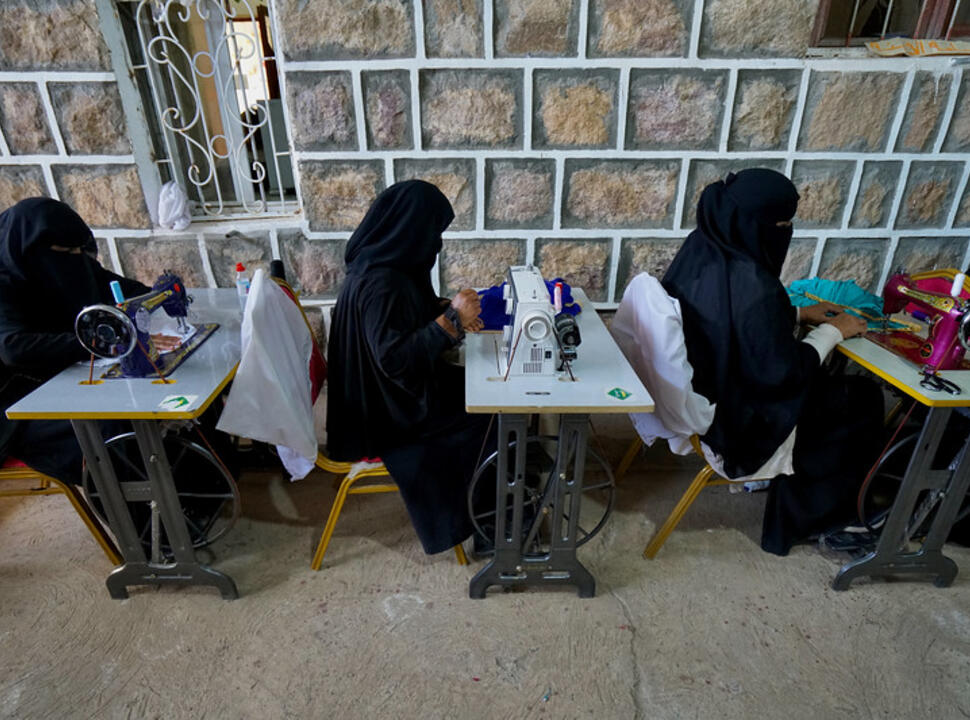
Women sew clothes at a UNFPA-supported women and girls safe space in Al Turbah that they can sell. One of 51 safe spaces that UNFPA supports, it provides livelihood skills training among a range of gender-based violence services to women in the area or who have been displaced. © UN/Giles Clarke
-
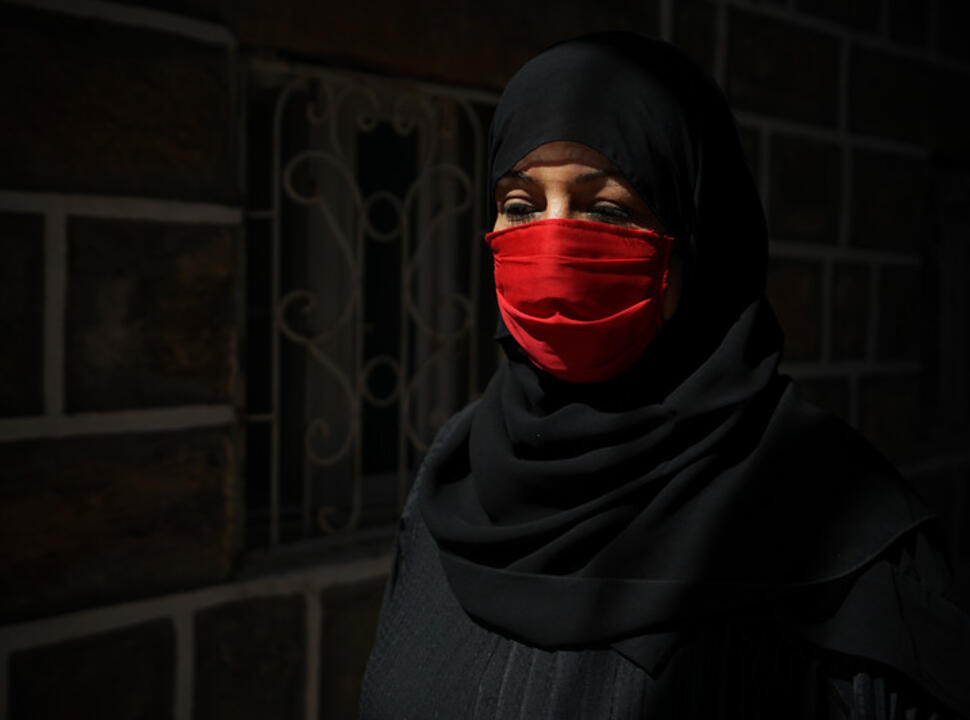
Halima*, 30, was displaced within Taiz when her neighbourhood came under fire in 2015. She, her husband and three children fled south to another village, where she became the main breadwinner selling perfume at the market. Though she works 11 hours a day, she can barely afford the $60 monthly rent and has borrowed $1,000 that she worries about repaying. “My children dream of eating eggs,” she said. “All we have is bread.”
Her unemployed husband physically and verbally abuses her. “I stay only for the sake of my children,” she said. Sometimes, as her husband attacks her, she’ll hear her youngest daughter shouting, “Don’t touch mum, don’t beat mum!” Halima is currently receiving psychosocial support at a UNFPA-supported women and girls safe space. © UN/Giles Clarke
*Name changed for privacy and protection
-

A woman with her baby inside her temporary shelter at the internally displaced persons settlement in Al Turbah. From January - December 2021, UNFPA supported 151,115 safe deliveries, including 17,764 Caesarean sections across 21 governorates in Yemen. The agency reached a total of 1,584,175 women with reproductive health services. UNFPA is the sole provider of reproductive health medicines in the country. © UN/Giles Clarke
-
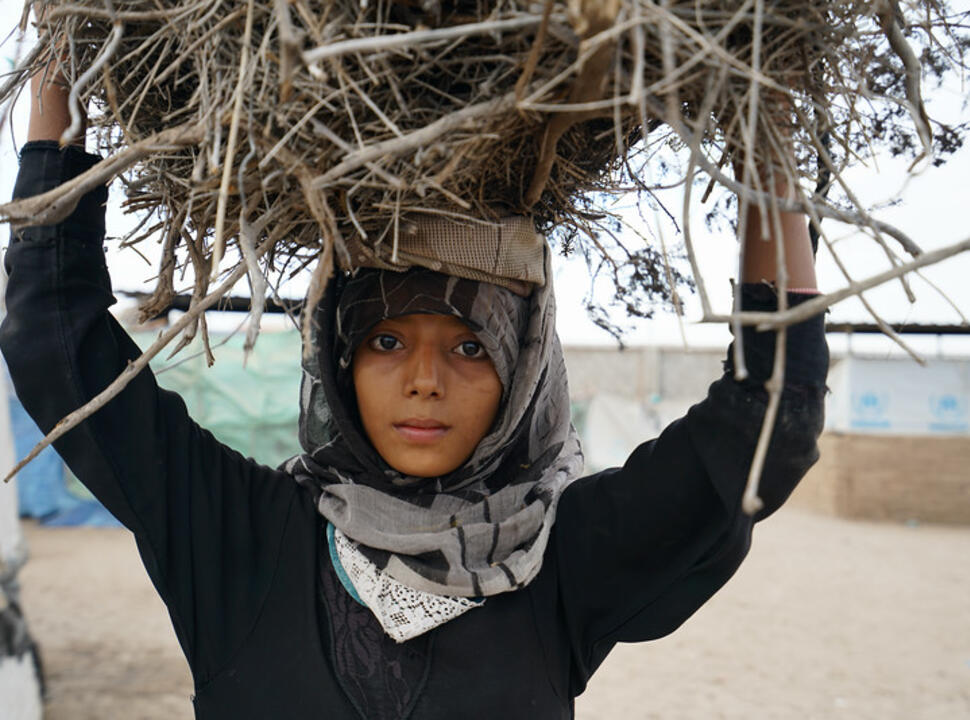
Ten-year-old Khadija Mohommad carries wood back to the family’s temporary shelter at Shaab internally displaced persons settlement on the outskirts of Aden. She has a painful blood disorder, but the family cannot afford medical treatment. “I want to feel better and do more to help my mother,” said Khadija, whose family fled Al Hudaydah after conflict erupted close to their home. © UN/Giles Clarke
- Home
- Slideshows
- Yemen on the brink: Portrait of a humanitarian crisis
Yemen on the brink: Portrait of a humanitarian crisis
11 March 2022
Related Content
Pagination
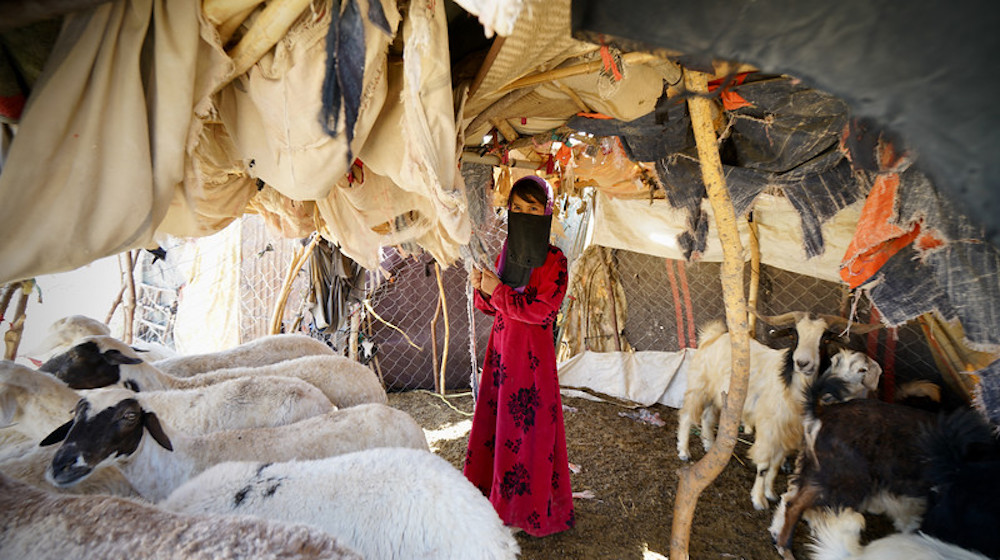
Slideshow
Yemen on the brink: Portrait of a humanitarian crisis
Yemen on the brink: Portrait of a humanitarian crisis



